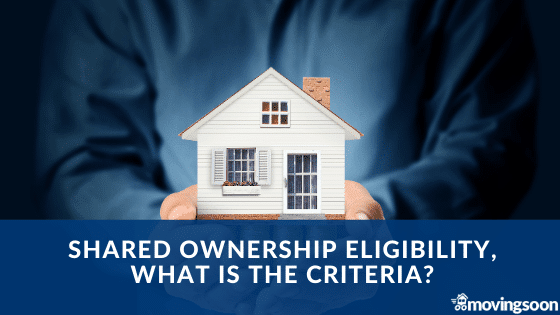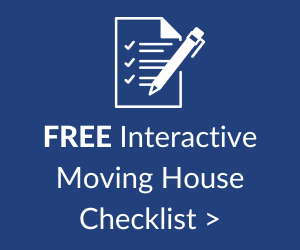Shared ownership eligibility, so what is the criteria? When it comes to the eligibility criteria for buying shared ownership property, there are no rules as such.
However, you must qualify for shared ownership to be eligible. In addition to this, there are a number of factors you should also consider. In this blog post we will discuss the eligibility criteria for buying shared ownership property.
Table of Contents
What is the current shared ownership eligibility criteria?
The eligibility criteria for buying shared ownership property varies in countries in the UK:
- Your combined household income must be less than £80,000 (in London, it’s less than £90,000).
- You must be a first time buyer or if you used to own a house, you no longer own it or are in the process of selling it.
- If you are an existing shared ownership owner you can sell your current shared ownership home to buy an alternative shared ownership property.
- If you are 55 years old or older, you can buy up to 75% of your shared ownership home. Once you own a 75% share in your property you do not have to pay any rent to the housing association. This is known as Older People’s Shared Ownership scheme.
Other things you need to know to qualify for shared ownership
As with any property transaction where you require a mortgage. So you will need to save a deposit. However, with shared ownership mortgages you only need to save 5% rather than the industry standard of between 10-20%+.
Furthermore, because you are taking out a mortgage on a share of the property rather than the full property value, the amount of deposit you will require will be less. For example, if you were buying a 50% share in a home valued at £150,000. This means you would only need a deposit of £3,750 (50% of £75,000) for the mortgage.
This is only an example, mortgage providers will be able to provide more details about what you can and cannot put down as a deposit.
Are shared ownership properties leasehold?
Most shared ownership properties are leasehold. Due to the way the lease is structured for shared ownership, it will mean that the property will be subject to a service charge.
If you need to find out more about shared ownership leaseholds, there are some helpful sites available online, such as The Leasehold Advisory Service.
How does leasehold work if I buy my shared ownership home 100% outright?
If it is a flat you own it is likely you will still need to pay a service charge as your housing association. They may remain the freeholder of the block of flats or apartments. If you own a house you may be able to get the freehold transferred over to you. Check with your housing association to see what their rules are.
How do you calculate the rent that is paid on the remaining share of my shared ownership property?
At the moment, the rent is calculated as being 2.75% of the remaining share divided by 12. So, if we use the same example as we did for mortgage calculation it would be 50% of the property to pay rent on. In our example this would be £75,000 divided by 2.75% which is £2,062.50 per annum. Which means monthly (divided by 12) rent would be £171.88. It is worthwhile checking this with the housing association you are dealing with.
You need to budget for mortgage, rent and service charge payment and potentially a lease extension.
How do you buy more shared ownership?
If after buying your shared ownership home you would like to invest more money in your property and buy a larger share you can. This is known as staircasing. The process is similar to remortgaging. The difference is that you will need to get your property valued to work out how much more you are able to buy and get an appropriate mortgage to cover these larger payments.
The criteria may differ depending on which housing association is running the scheme. As ever, it is always a good idea to ask what you would need to do in the event of you wanting to purchase more of your shared ownership home so that you can plan ahead.
What fees are involved in staircasing?
Firstly, you will need to speak to your housing association to understand what options there are to staircase your home. For example, they may have specific amounts you can staircase at a time.
You will need to pay to have a surveyor complete a valuation of your shared ownership property. So, for example, if the value of the property has increased, then it will be more costly to buy a bigger share than it would have been when you decided to shared ownership it in the first place. However, with this example, the good thing is here that your initial share will be worth more than you paid for it.
Don’t forget though that the value could also decrease. This would mean your initial share is not worth as much as you originally paid for it. However, you could buy a bigger share cheaper than you could when you first agreed to shared ownership.
If you staircase to 100% you become an outright owner, and pay no rent.
It is important to bear in mind that you may face other costs to staircase your home. This includes legal fees and mortgage arrangement fees. It will also include as well as additional valuations in the case of valuer disputes or expired valuation reports.
However there is one major positive if you own a bigger share of the property. It means less rent to pay the housing association.
Is shared ownership only for first time buyers?
Shared ownership allows middle and low income earners the opportunity to buy their own home. It also means you can do so with a little less risk. So you don’t have to save for a large deposit and potentially get on the home ownership ladder a little quicker. It’s also a great way to see if you could manage the full expense of owning your own home outright.
For this reason shared ownership can be a popular choice for first time buyers, but also those who have gone through a relationship breakdown or downsizing.
Are you interested in a shared ownership property? If so, start your search for a shared ownership properties today.
Once you have made your decision use our moving house checklist which lists the things you need to do when moving house.
Shared Ownership: Key Topics
- What questions should you ask when viewing a shared ownership property?
- Is shared ownership right for you?
- What is the downside to shared ownership houses?
- What does shared ownership service charge cover?
- What are solicitors fees for selling shared ownership property?
- Buying or selling shared ownership what are the costs?
- Shared ownership vs renting what will you do?
- How does shared ownership work when you sell?
- Is shared ownership only for first time buyers?
- How does shared ownership staircasing work?
- Are shared ownership houses leasehold or freehold?

